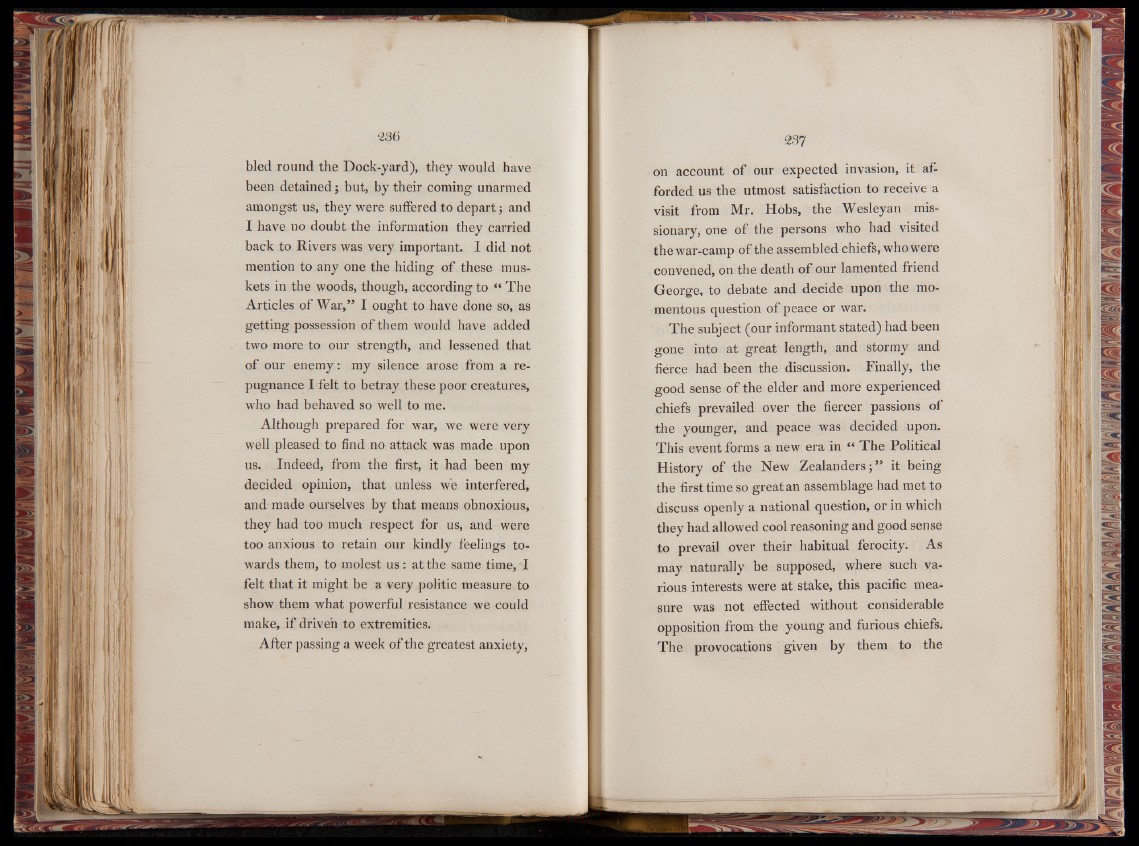
bled round the Dock-yard), they would have
been detained; but, by their coming unarmed
amongst us, they were suffered to depart; and
I have no doubt the information they carried
back to Rivers was very important. I did not
mention to any one the hiding of these muskets
in the woods, though, according to “ The
Articles of War,” I ought to have done so, as
getting possession of them would have added
two more to our strength, and lessened that
of our enemy: my silence arose from a repugnance
I felt to betray these poor creatures,
who had behaved so well to me.
Although prepared for war, we were very
well pleased to find no attack was made upon
us. Indeed, from the first, it had been my
decided opinion, that unless we interfered,
and made ourselves by that means obnoxious,
they had too much respect for us, and were
too anxious to retain our kindly feelings towards
them, to molest us: at the same time,T
felt that it might be a very politic measure to
show them what powerful resistance we could
make, if driven to extremities.
After passing a week of the greatest anxiety,
on account of our expected invasion, it afforded
us the utmost satisfaction to receive a
visit from Mr. Hobs, the Wesleyan missionary,
one of the persons who had visited
the war-camp of the assembled chiefs, who were
convened, on the death of our lamented friend
George, to debate and decide upon the momentous
question of peace or war.
The subject (our informant stated) had been
gone into at great length, and stormy and
fierce had been the discussion. Finally, the
good sense of the elder and more experienced
chiefs prevailed over the fiercer passions of
the younger, and peace was decided upon.
This event forms a new era in “ The Political
History of the New Zea l ande r s i t being
the first time so great an assemblage had met to
discuss openly a national question, or in which
they had allowed cool reasoning and good sense
to prevail over their habitual ferocity. As
may naturally be supposed, where such various
interests were at stake, this pacific measure
was not effected without considerable
opposition from the young and furious chiefs.
The provocations given by them to the